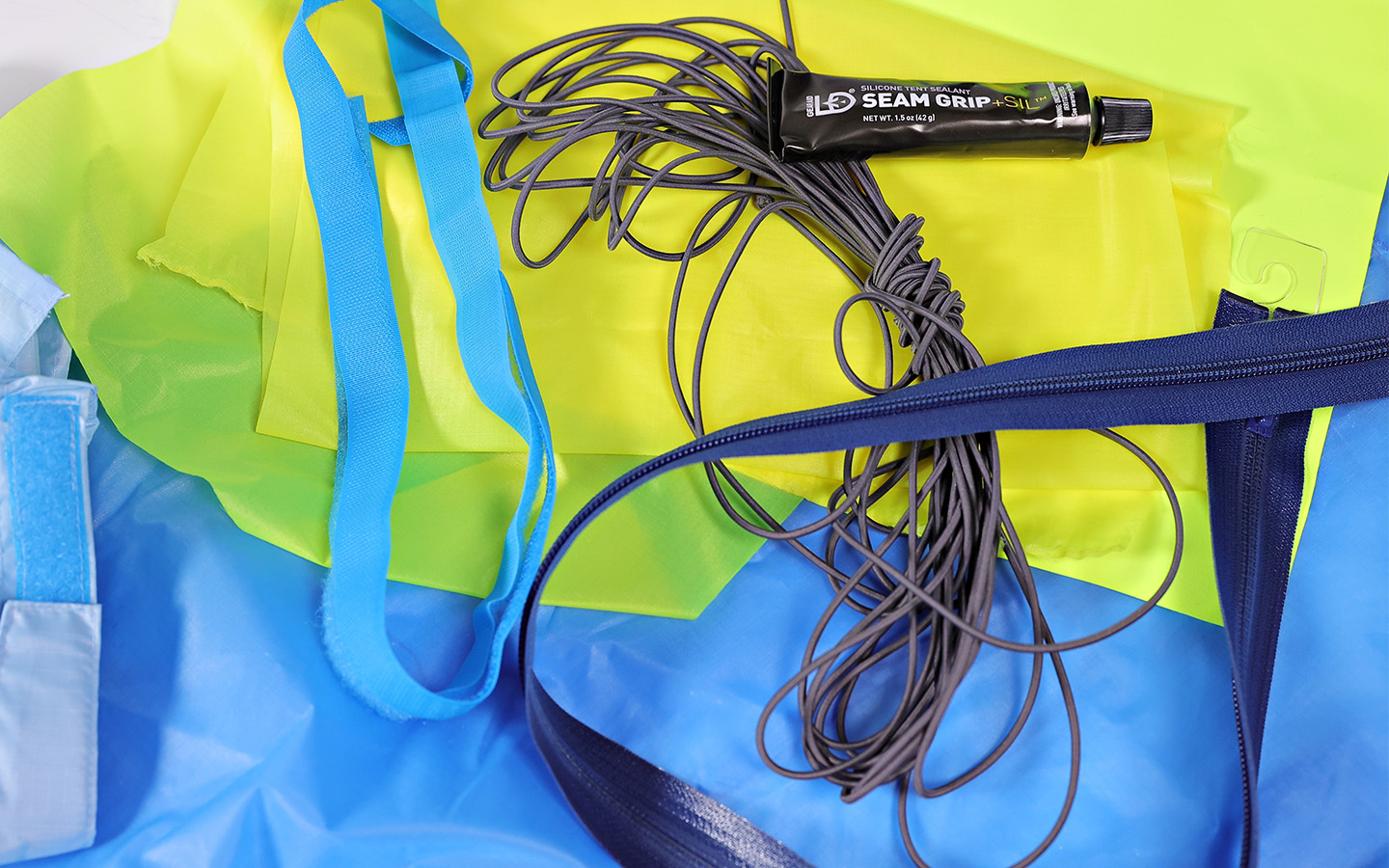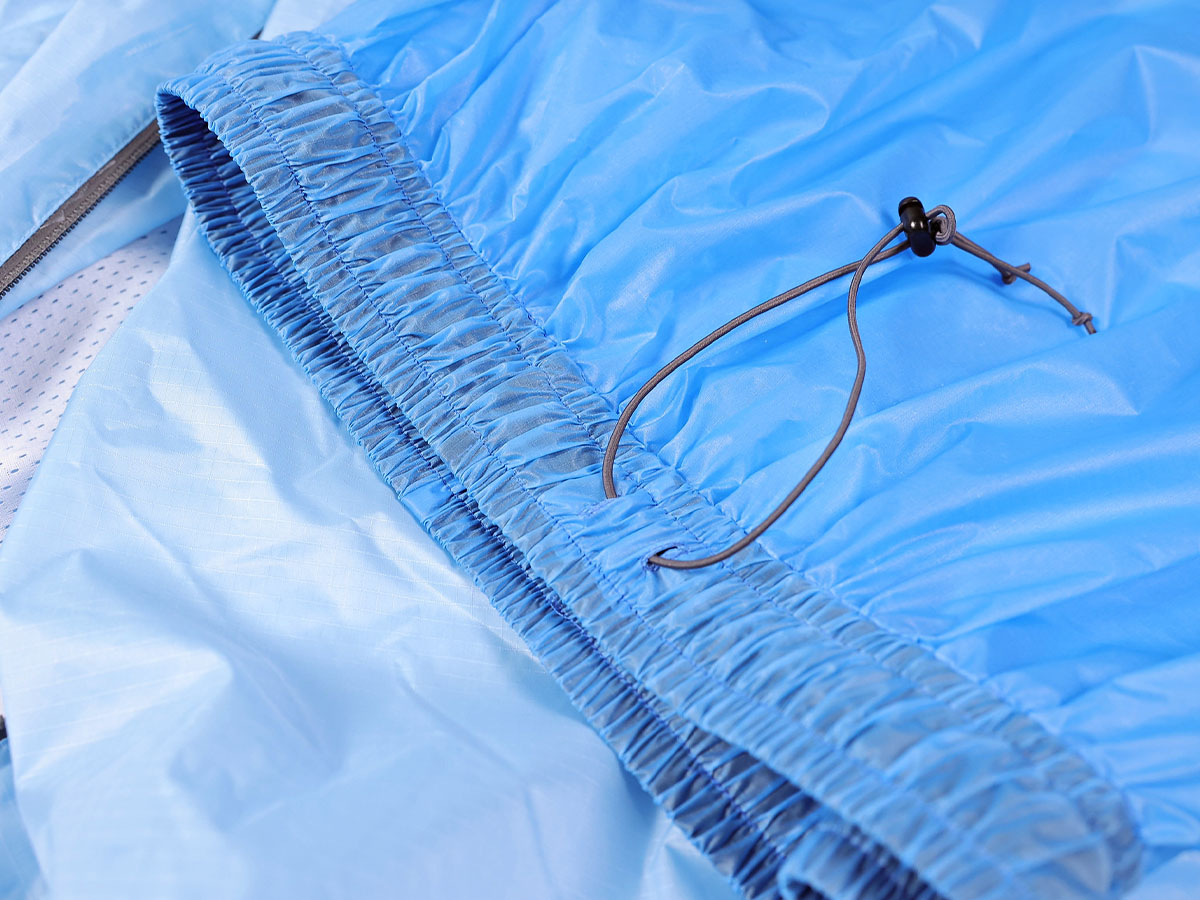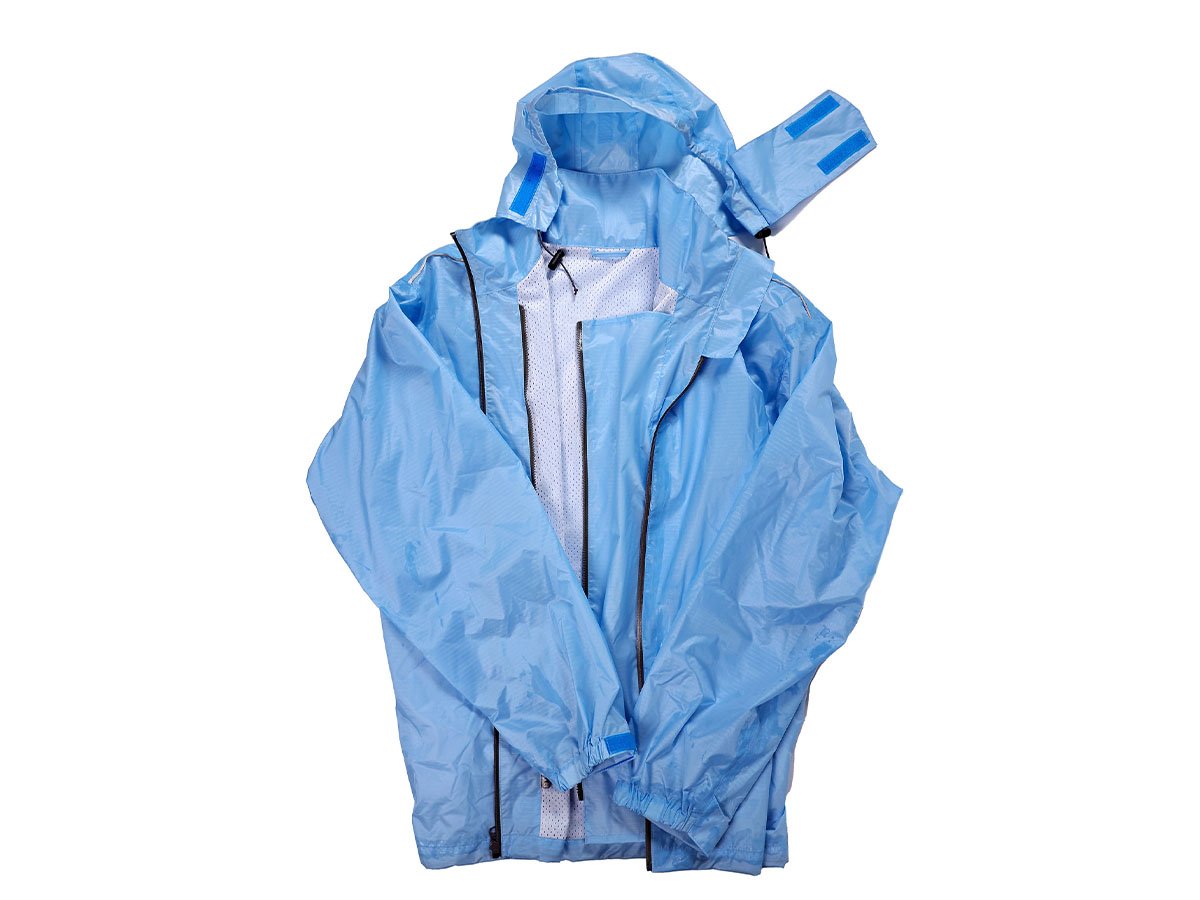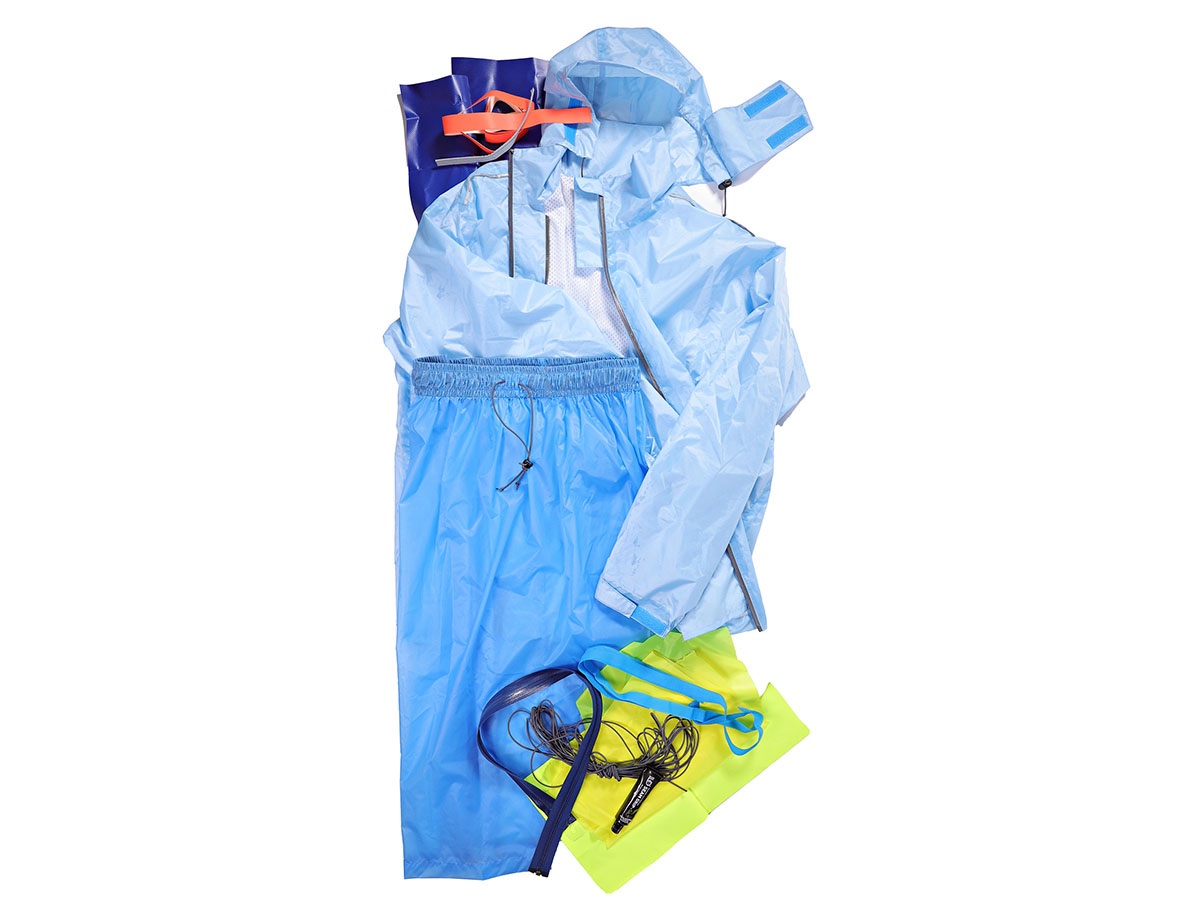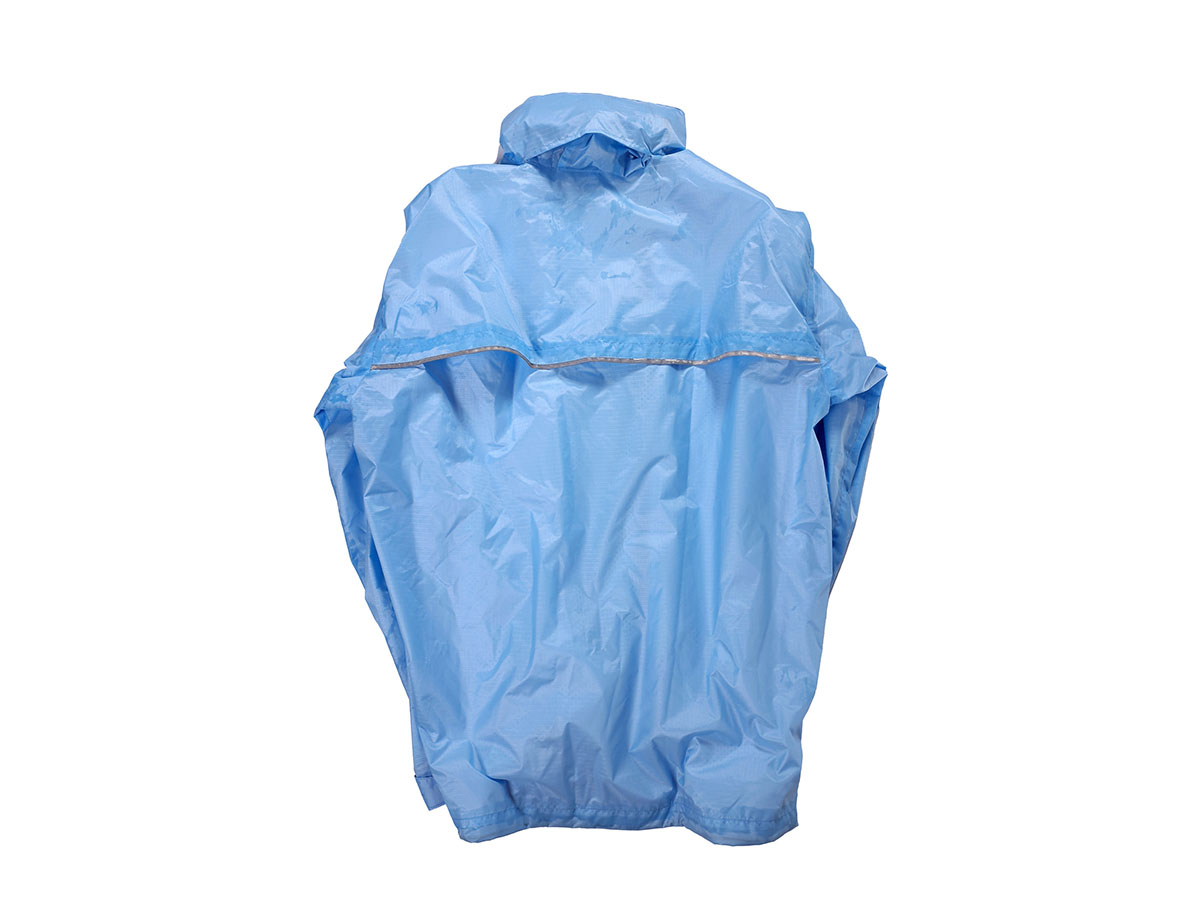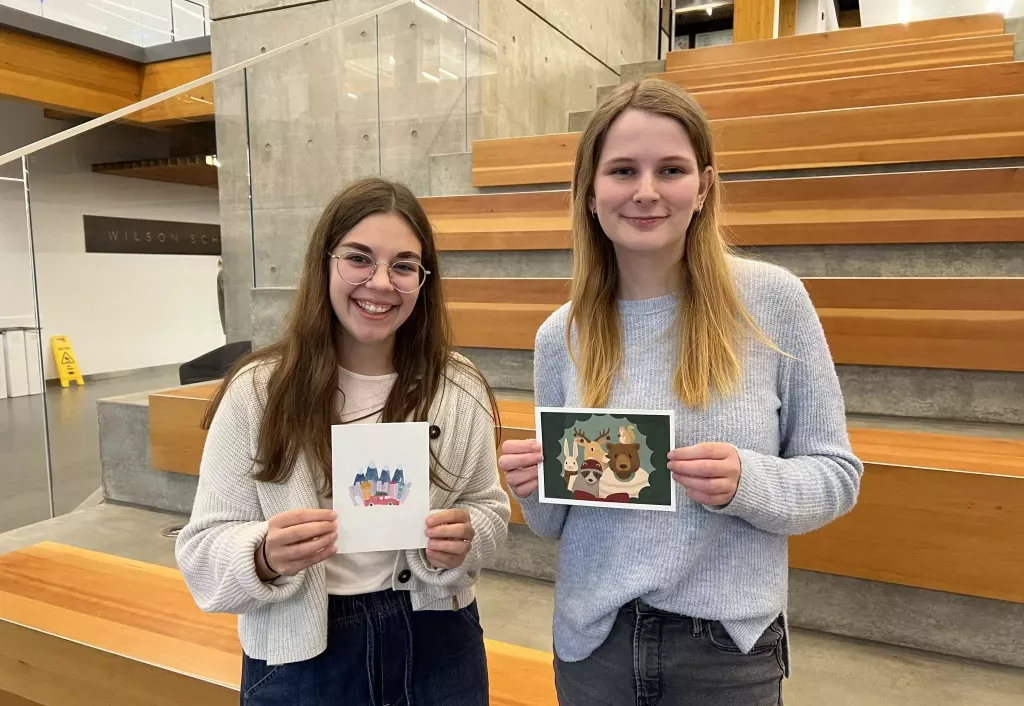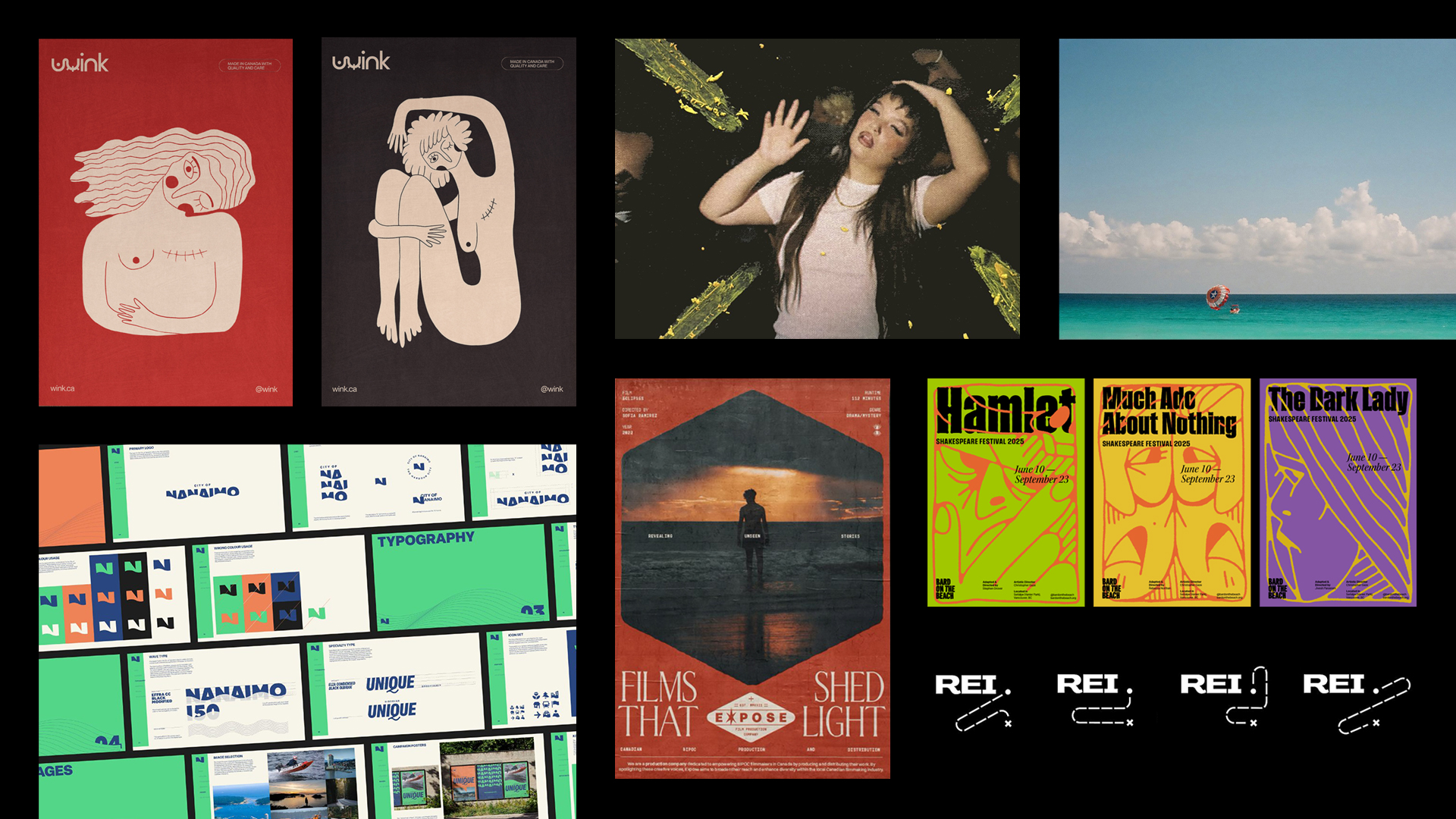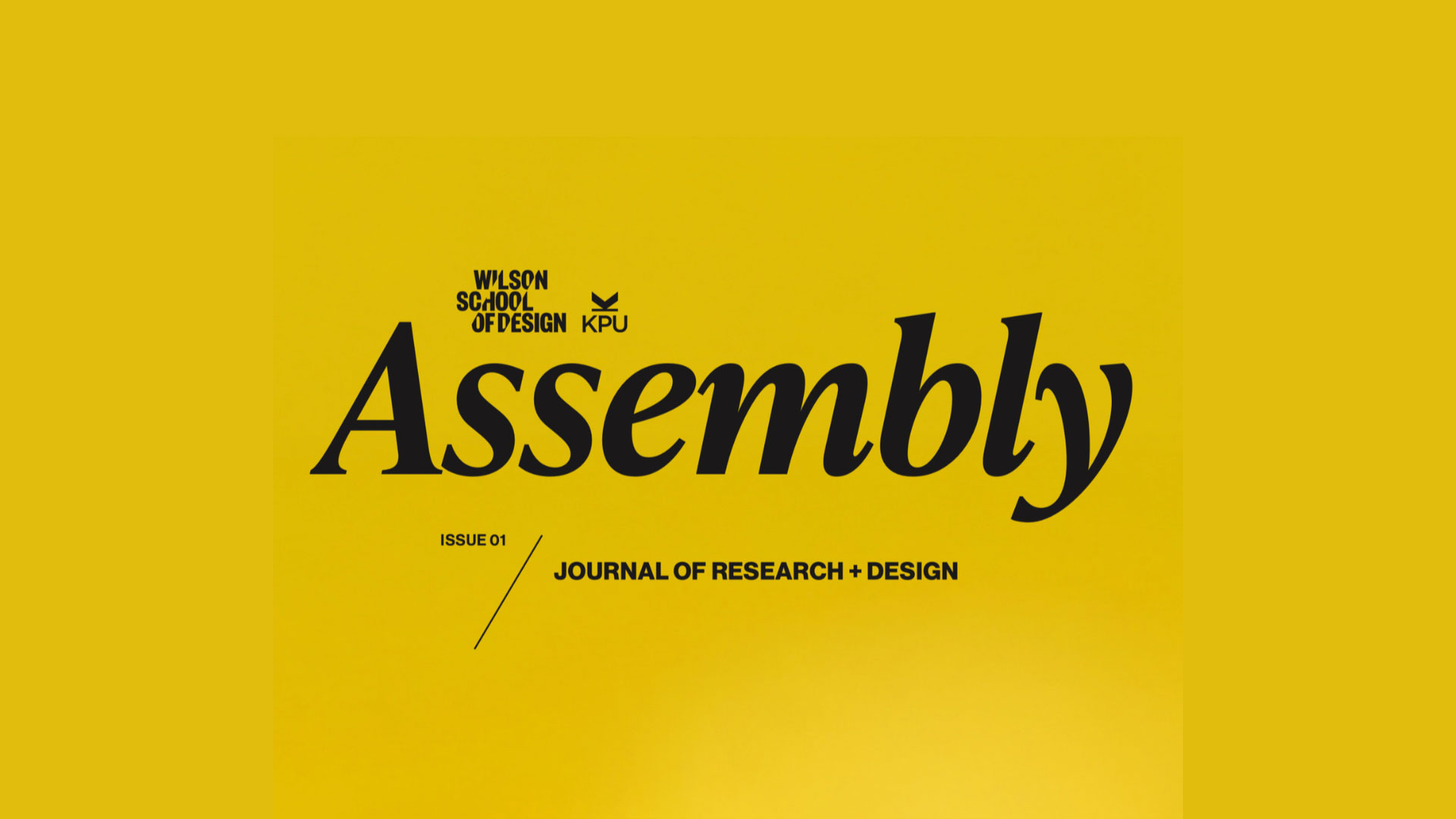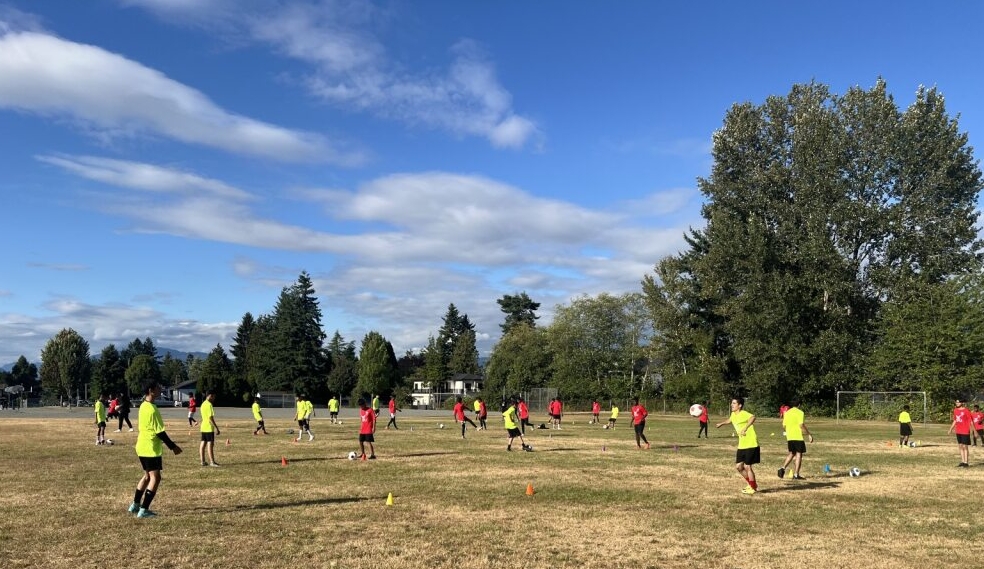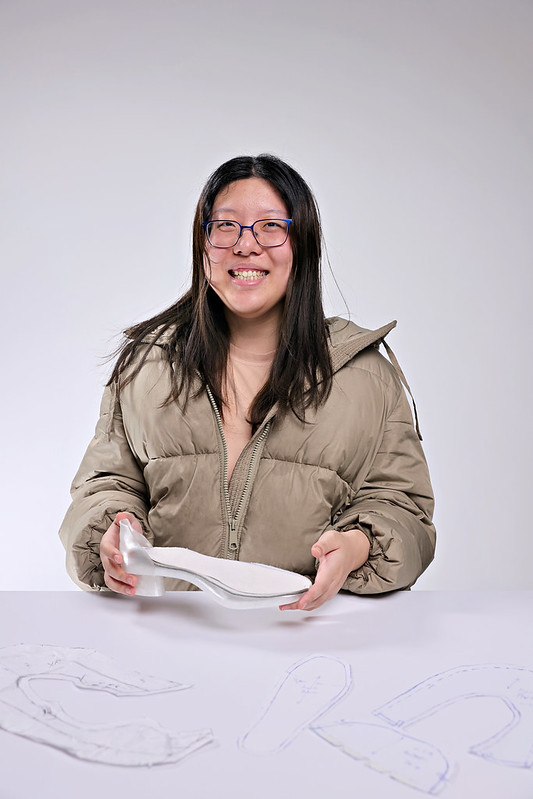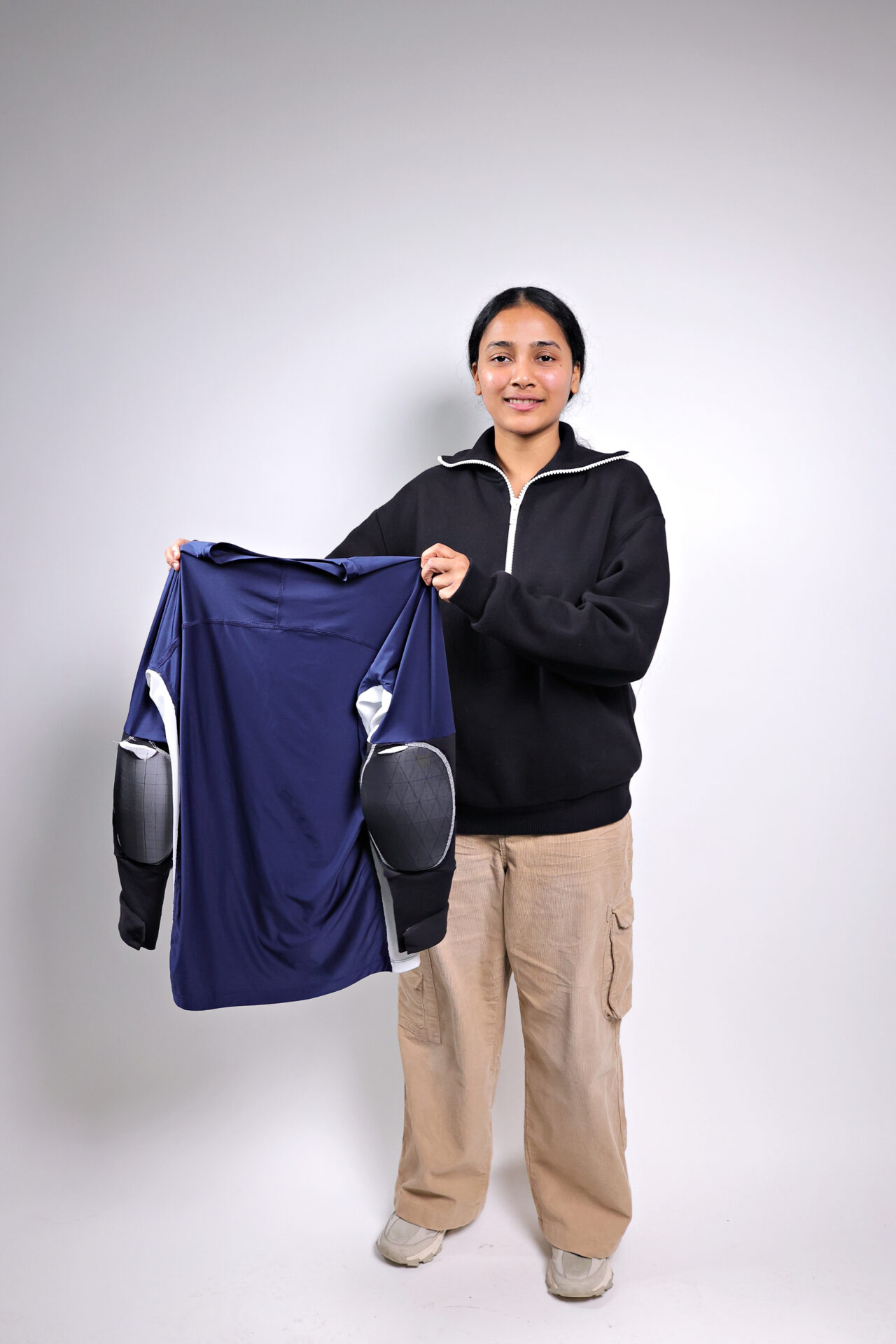Technical Apparel Design student William Werblow addresses the lack of suitable rainwear for scooter commuters in Southeast Asia, particularly in hot, humid, and rain-heavy urban environments like those in Taiwan, in his research project.
Most available options—such as disposable ponchos or bulky PVC-coated jackets—are uncomfortable, hard to put on quickly, and poorly suited to the posture and clothing of riders. While PVC garments are durable, they are heavy and rigid. Ponchos, meanwhile, tear easily and contribute to plastic waste. More broadly, technical apparel is often designed for alpine climates and recreational use, with little consideration for everyday users in the Global South—despite the fact that these regions face some of the most intense climate-related weather. This project aimed to address that disconnect by designing rainwear that reflects the realities of daily life in hot, humid cities, while promoting greater usability, comfort, and environmental responsibility.
In many Southeast Asian cities, riding a scooter is one of the most common ways to get to work—even during heavy rain. But most rain gear on the market isn’t made with scooter riders in mind. It’s often bulky, restrictive and difficult to put on quickly when the weather suddenly changes. This project explored how people actually move and dress when riding, especially those commuting to office jobs. The design process involved asking real riders about their frustrations, testing different fabrics, and experimenting with how rainwear could work better for both comfort and safety. The result was a new type of rain jacket that includes a fast-closing lower section for full-body coverage without needing separate pants. By rethinking closures and fit while seated, the final design offers better protection and usability—especially for busy commuters caught in unpredictable storms.
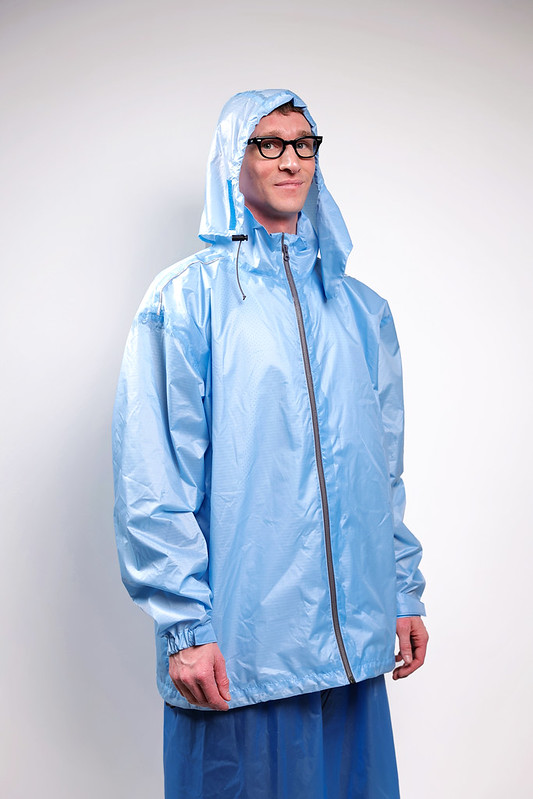
This project has the potential to improve daily life for millions of scooter commuters in Southeast Asia by addressing a common but overlooked need: staying dry and comfortable during sudden, heavy rain. By prioritizing ease of use, effective ventilation, and compatibility with both professional clothing and scooter ergonomics, the redesigned rainwear offers a practical alternative to disposable ponchos and rigid, uncomfortable gear. In doing so, it supports not only individual comfort and safety but also broader environmental goals by reducing reliance on single-use plastics. Beyond the garment itself, the project demonstrates how human-centered, climate-responsive design can improve everyday mobility and encourage more sustainable, context-specific innovation in apparel and infrastructure.
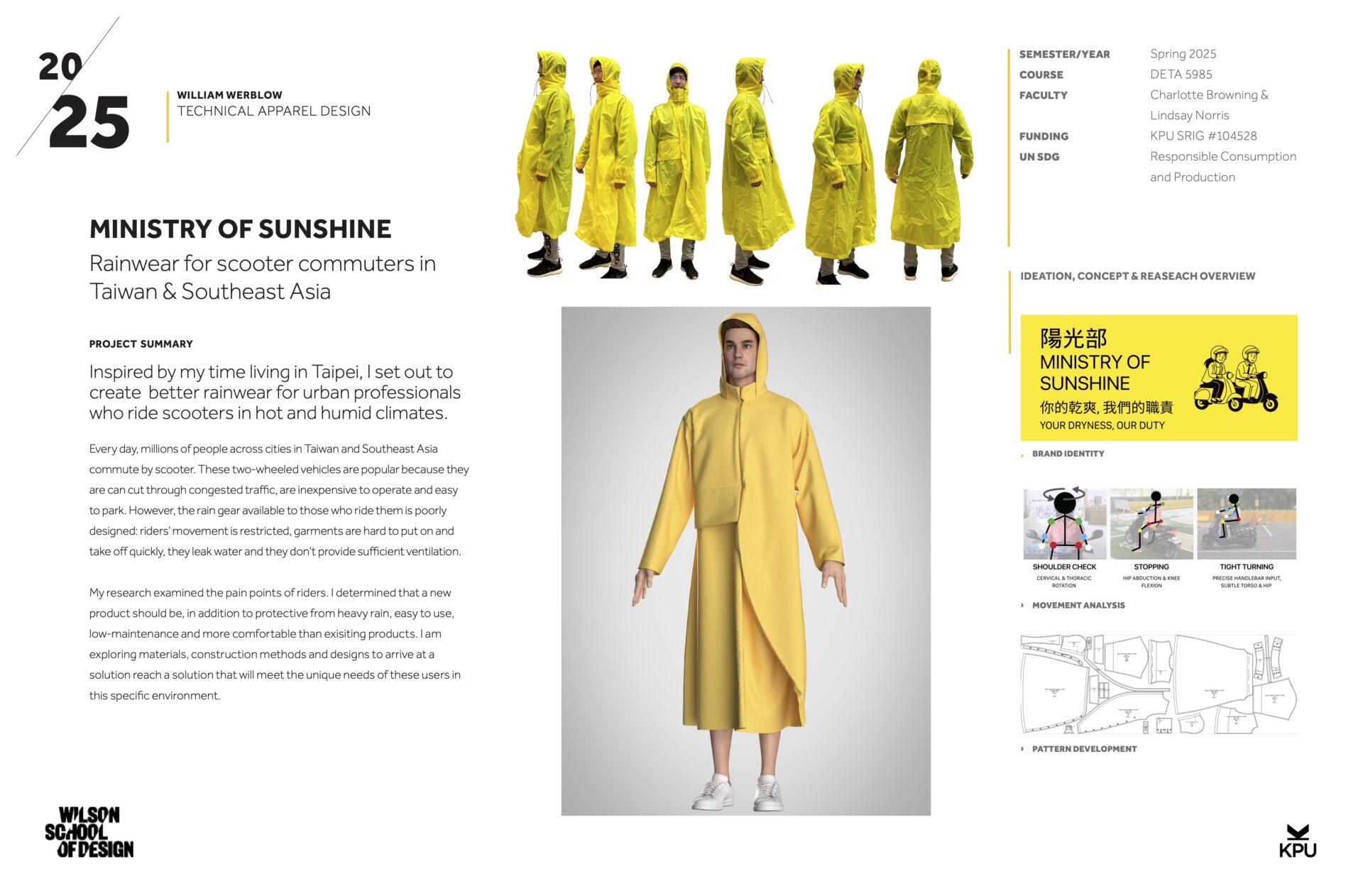
Research at the KPU Wilson School of Design creates evidence-led solutions. We work with companies, organizations and institutions in a collaborative process to design and deliver solutions for complex and evolving challenges.
Supervisor: Lindsay Norris
UN Goals: 11, 12, 14, 15
Program: Technical Apparel Design
